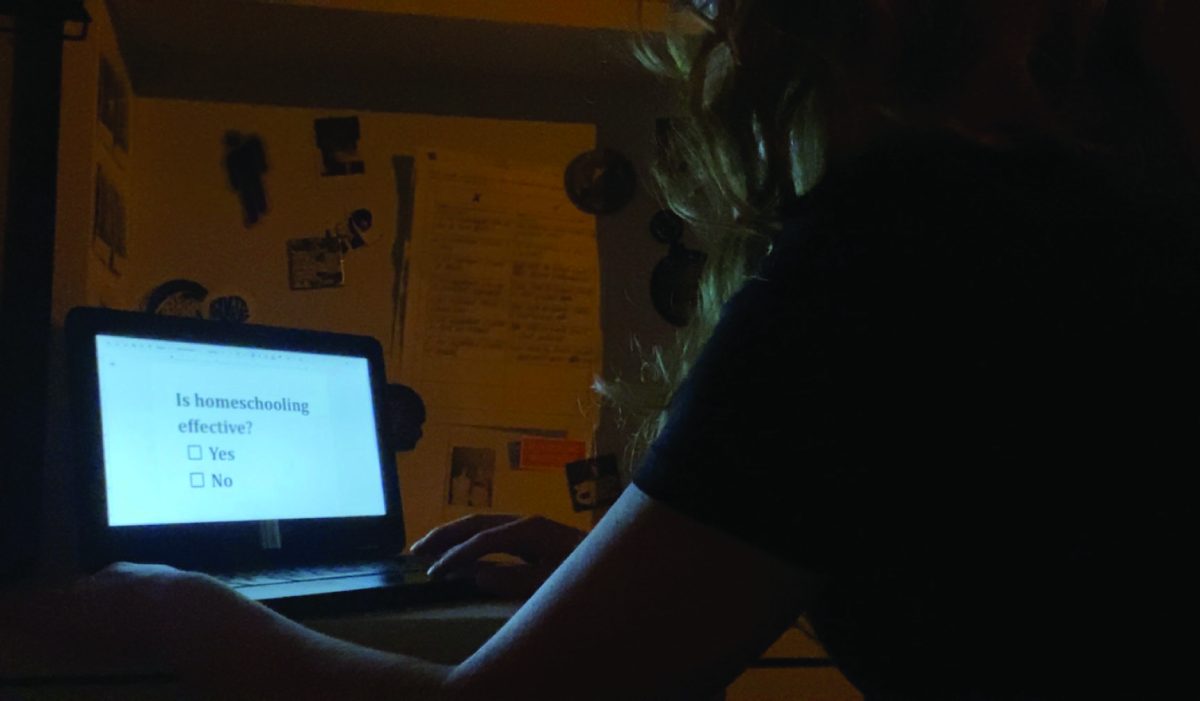Opinion: Let’s talk about something that matters
May 26, 2020
Walking down the bustling halls of Lincoln Southeast, usually, all you can hear is something along the lines of, “Oh my God, did you guys hear about Jackson and Ashley? They’re back together again.”
Sometimes, there’s an even worse regular conversation starter: “How long did you go tanning yesterday?”
One more. “Kim Kardashian’s outfit on the red carpet last night was so ugly!”
When given a choice between a conversation over an easy topic or a more complex one, people usually pick the easier one. It’s just human nature. But why do people continue to put more effort into these surface-level conversations? In short, it’s because of something called the law of triviality — otherwise known as the “bike-shed effect.” Late British historian, author and economist, C. Northcote Parkinson, made an argument in 1957 that members of an organization give disproportionate weight to trivial issues, focusing on topics of minor importance, rather than more essential ones.
His example was that a fictional committee, whose assignment was to approve plans for a nuclear power plant, instead spent most of its time talking about minor issues, like what materials to use for the staff bike shed, instead of focusing on the plant itself — the root of the issue. The plant is obviously far more complex and important than the bike shed, but since they don’t know a lot about it, they choose to talk about the shed.
At the end of the day, which matters more? The bike shed or a nuclear power plant? The answer is simple, yet the majority of people still choose to focus on these minor issues in their daily lives. Maybe this has to do with their mental capacity for certain issues, or the fact that talking about minor or more bland topics is easier in a conversation. Quite simply, it’s much less awkward to ease oneself into a lighthearted conversation about the weather, than it is to dive into — for example — the secrets of the universe, our deepest fears and the conservation of a planet gone haywire. This isn’t necessarily our fault as humans. We are a heavily social group of mammals, and often crave social interaction. With this being said, choosing topics such as the weather or our plans for dinner is a much socially safer option than talking about the creation of mankind or the state of our economy.
In an article for The Atlantic titled, “Why We Can’t Help Ourselves from Caring About Things That Don’t Matter,” by contributor Rebecca Greenfield, Greenfield points out that since everyone feels the need to say something on the internet, mundane topics are often the topics that get talked about the most. Many seemingly meaningless topics that continually float over social media platforms are easily accessible and often common knowledge to the general population.
“Meanwhile, the more complex questions — like ‘How Will Yahoo Increase CPM’s Given Current Trends in Digital Advertising?’ — get much less attention, because most people can’t comment with any intelligence,” Greenfiled wrote.
In a column for The Guardian titled, “Why is trivia so important?” written by contributor Oliver Burkman, Burkman explains that people want to “demonstrate, to the boss or to themselves, that they are taking part, paying attention, making a difference, ‘adding value’” Burkman wrote, referring to Parkinson’s point. “But with complex subjects about which they’re ignorant, they can’t: They risk humiliation.”
A lot of this has to do with not being informed on these heavy topics, so the way out is often to fall back onto the topics we know most about. Which for most people, are topics such as the weather, because we know a lot about the weather; we experience it every day.
In my experience, people who are more introverted tend to choose the heavier topics to talk about. It seems as if since they usually have more time to themselves, they have more time to think about things, often being heavier topics. Personally, I find it hard (and boring) to talk about trivial things like Kylie Jenner’s lip fillers or her diet. In 50 years, only a few people here and there will look back on things like that.
However, there are small, seemingly insignificant things that can actually turn out to be important — such as what you eat, who you associate with or the price of gasoline. Although at the time they don’t seem like they can ever amount to much, they may actually have greater importance in the context of the bigger picture.
In fact, the topics that I categorize as trivial may mean a lot more to another person, which can be hard, because although I feel this way about something, I find myself adjusting how I feel in order to keep a conversation going or avoid awkwardness.
Working at a grocery store made me realize just how much I despise small talk. After just my first day on the job, I quickly became tired of repeating the phrases we all know, but somehow can’t escape. “Hi, did you find everything okay?” and “Would you like paper or plastic bags today?” and “Would you like your milk in a bag?”
Over. And. Over. I tried to make things less mundane by changing up words and asking different questions, but often, my customers were so used to the monotonous repetition, that the attempted shift in conversation never really worked.
I yearned for that once-in-a-blue-moon customer who would ignite a conversation about veganism or the damage that plastic bags do to the earth. These conversations felt like a breath of fresh air, and I felt like the words I was casting into the air actually meant something.
If given the chance, I could talk about certain topics for hours and hours, but I catch myself holding back most of the time because I don’t want to come off annoying or overbearing. I wish I could freely discuss heavy topics with my peers, but socially, it never seems acceptable. In fact, sometimes, discussing deeper topics with casual acquaintances or friends brings the conversation to a screeching halt. I’ve gotten the line, “Man, you’re a Debby downer,” more than once or twice.
Talking about meaningful things couldn’t come at a more perfect time. In light of the COVID-19 pandemic, we could all take the abundance of time we have to reflect on the world around us with our peers. Along with this being productive, it could also help to ease the uncertainty if we talked through it with each other.










